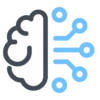Storing eCommerce search history in a secure Customer Master Data Management (MDM) system, such as Pretectum CMDM, offers significant advantages in data privacy, security, and compliance.
By centralizing search history, organizations can enhance user experience and operational efficiency while integrating behavioral data from previous customer searches. Pretectum CMDM provides flexible API options for seamless integration with various systems, enabling real-time access to customer information and improving customer service by attaching past search activities to profiles.
The system employs robust encryption and strict access controls to protect sensitive data, ensuring compliance with data privacy laws through transparent management practices. Additionally, features like audit trails and high data quality help maintain a Single Source of Truth (SSoT), reducing the risk of data breaches associated with fragmented storage.
By leveraging aggregated data and preferences from multiple sources, Pretectum CMDM enables a holistic view of customer behavior, enhancing personalized marketing efforts and supporting customer retention and acquisition strategies across diverse industries.
Privacy First principles for Search Histories
Storing eCommerce search history in a secure Customer Master Data Management (MDM) system, rather than directly in the eCommerce user profile, has several advantages, particularly concerning data privacy, security, and compliance.
Pretectum CMDM supports an organization in leveraging Customer Master Data to enhance user experience and operational efficiency, integrating behavioral data made in prior customer searches.
By way of flexible API options an organization can make use of seamless integration with cloud, on-premise, and hybrid systems, enabling real-time access to customer information.
The system’s Customer Search by API focuses on improving operational efficiency and customer service, allowing the attachment of past search activity to profiles for enhanced security and optimization.
Additionally, Pretectum CMDM supports efficient data management to boost customer retention and acquisition strategies by incorporating aggregated data and preferences from various systems while handling both structured and some unstructured data.
Key Factors in Securing Search History
Encryption: Pretectum CMDM employs robust encryption methods to protect sensitive data both at rest and in transit. This means that even if unauthorized access occurs, the data remains unreadable without the proper decryption keys.
Access Control: Pretectum CMDM applies strict access controls, ensuring that only authorized personnel can access sensitive customer data. Role-based access is implemented to limit exposure based on user roles within the organization.
Data Privacy Laws: Storing search history in an Pretectum CMDM system can help ensure compliance with various data privacy and data protection regulations. These laws require businesses to manage customer data responsibly and transparently, including how it is collected, stored, and used.
Audit Trails: Pretectum includes features that log access and modifications to customer data, providing a clear audit trail. This is crucial for compliance audits and for demonstrating adherence to data governance policies.
Single Source of Truth (SSoT): As a centralized repository for all customer-related data, including search history. This helps eliminate discrepancies and ensures that all departments are working with the same accurate information.
Data Quality: High data quality through regular cleansing and enrichment is part of the CMDM proposition. This reduces errors and inconsistencies that can arise from fragmented data storage across multiple platforms, the same applies to your customer search histories. Keeping them centrally stored means that the same data is presented to authorized system consistently, including search history.
Reduced Risk of Data Breaches: Fragmented data storage increases vulnerability to breaches. By consolidating sensitive information, including ‘search’ in the Pretectum CMDM with strong security measures, your business can significantly reduce potentially embarrassing and reputation damaging risk exposures.

Pretectum CMDM Privacy Governance Benefits
With Pretectum CMDM there is an emphasis on the importance of leveraging Customer Master Data to enhance the User Experience and improve Operational Efficiency. If there is behavioral data, this needs to have come from an integration or aggregation based on analysis of prior customer searches.
Through leveraging a variety of integration options an organizations is able to incorporate the Pretectum CMDM capabilities into virtually any modern day systems. This includes supplying flexible API options. Pretectum CMDM is in the cloud and integrations could be supported for other cloud systems, on-premise systems with internet or VPN-based integrations, and various hybrid systems.
Pretectum CMDM enables real-time access to Customer Master Data, allowing immediate retrieval and updates of customer information through APIs.
By centralizing search history within Pretectum your business gains a comprehensive view of customer interactions across any connected touchpoints. This can enhance personalized marketing efforts and improve customer engagement strategies.
Pretectum’s Customer Search by API is specifically designed for managing and accessing customer master data, focusing on improving operational efficiency and customer service however to facilitate better search experience a history of past search activity could be attached to the Customer MDM profile for the purposes of security, privacy and cross-platform and component optimizations and unified experiences.
CMDM focuses on enhancing customer retention and acquisition strategies through efficient data management however growth support can also be supported by extending classic customer profile schemas to incorporate aggregated data, preferences and markers from other systems. The system deals with structured customer master data in the main, focusing on details like customer profiles and interactions however a level of unstructured data is also supported depending on the configuration of the customer master data schemas.

